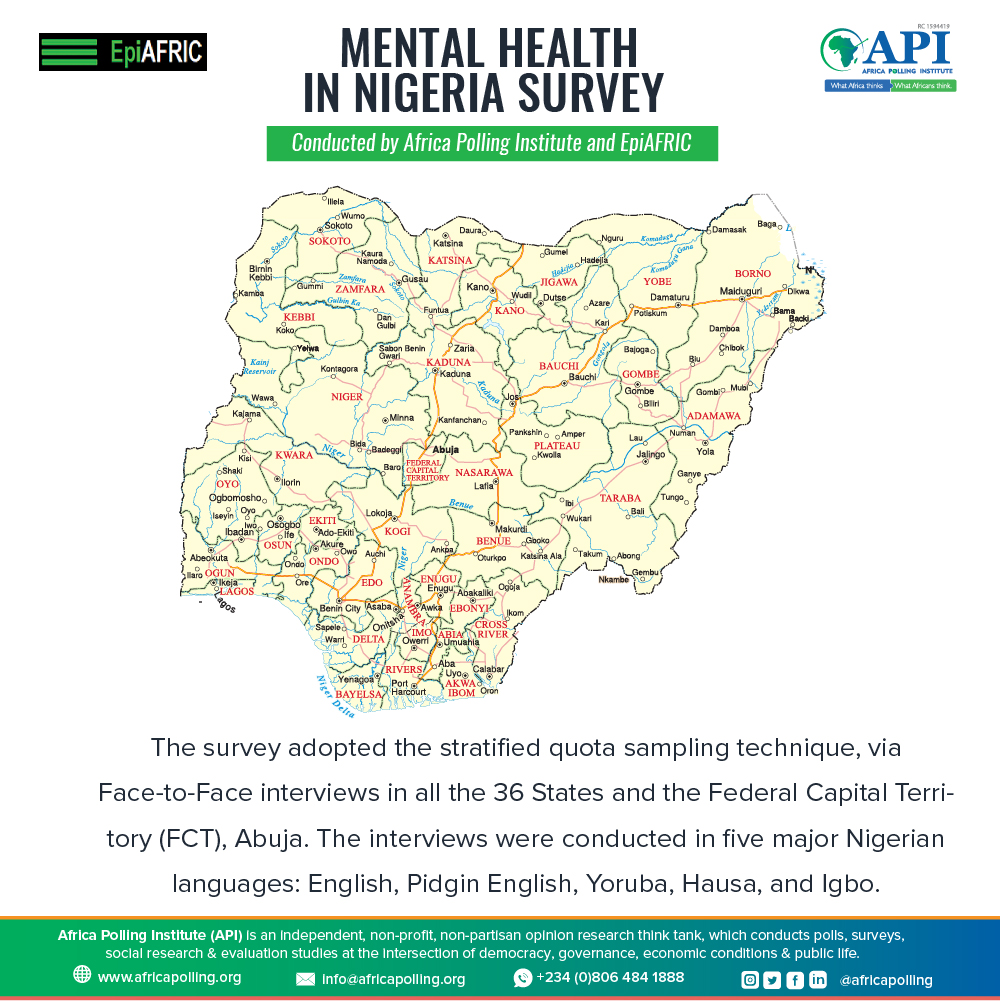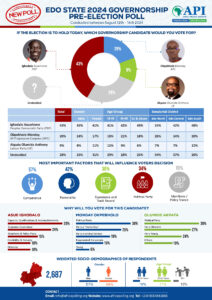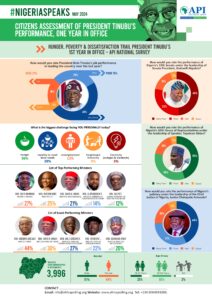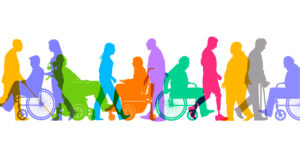Poor perception about Mental Health in Nigeria; Drug Abuse, Sickness of the Mind, and Possession by evil spirits identified as Major causes of Mental Illness – New Survey
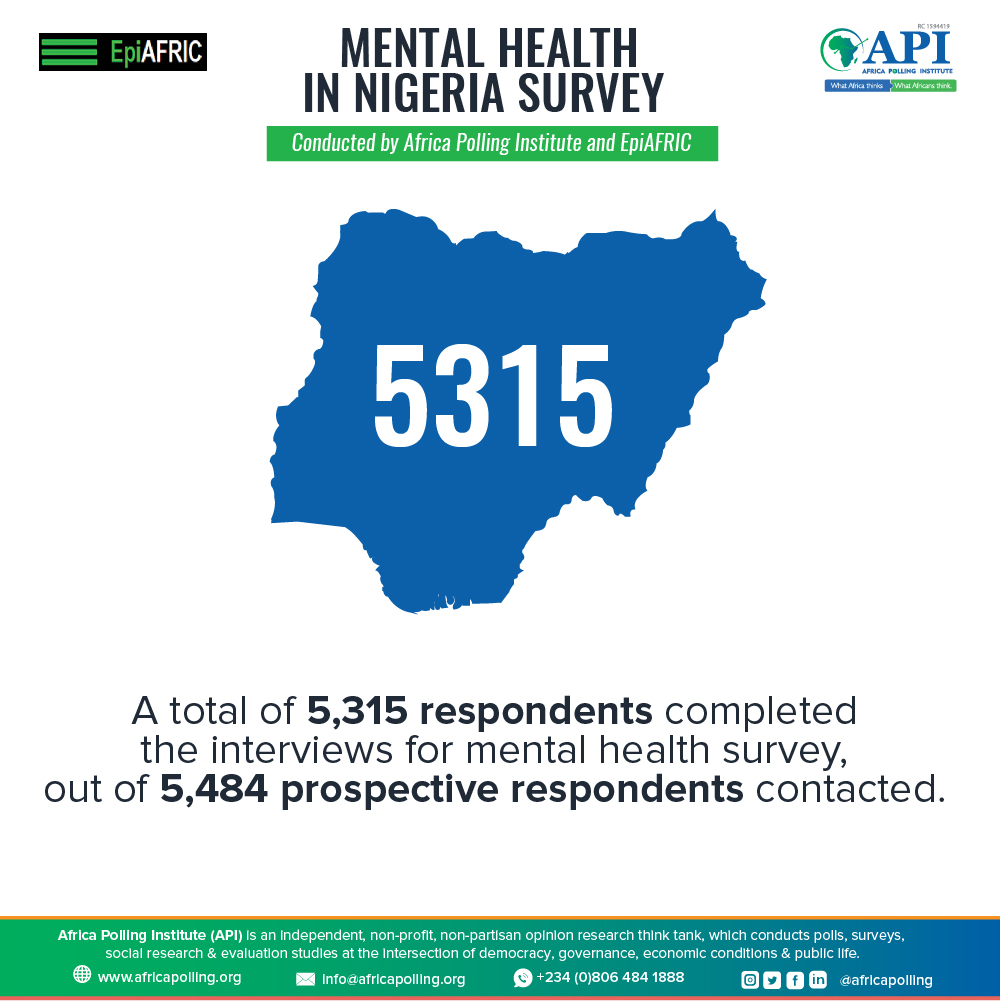
Abuja, Nigeria, January 14th, 2020 – EpiAFRIC and the Africa Polling Institute (API) has today released the Mental Health in Nigeria Survey Report [#MentalHealthInNaijaSurvey]. The report amongst other findings has revealed that there is a poor perception about mental health in Nigeria, as Nigerians identified drug abuse, sickness of the mind, and possession by evil spirits as the three major causes of mental illness.
The survey was conducted by Africa Polling Institute (API) in collaboration with EpiAFRIC as a contribution by both organizations towards creating awareness on mental health and changing the perception about mental health disorders in Nigeria. A total of 5,484 respondents were contacted, with 5,315 interviews completed who were aged 18 and older. All interviews were conducted between September 2nd and September 28th 2019, by Face-to-Face Household Interviews, using a stratified quota sampling technique. The interviews were conducted in five major Nigerian languages: English, Pidgin English, Yoruba, Hausa, and Igbo; and geographic quotas were assigned to ensure the selection of a nationally representative sample proportionately covering all senatorial districts and states, including the FCT.
The attention given to mental health disorders in Nigeria is at best, fleeting; the level of awareness of the Nigerian public on mental health issues is also understandably poor, and misconceptions regarding mental health have continued to flourish. Poor knowledge of mental illness, its causes and characteristics among Nigerians has been a major hurdle to improving mental health in Nigeria. Hence, this survey was designed to assess the level of information on the knowledge, perceptions and attitudes of Nigerians towards mental illness.
Investigation into evaluating and understanding what mental health disease is revealed that most Nigerians are aware of mental health disease. However, it appears that they recognize and connect with overt signs of mental disorders much more than covert signs. Findings from the survey revealed that 70% of Nigerians believe mental health disease is, “When someone starts running around naked”; 63% were of the opinion that it is “When someone starts talking to himself or herself”; “When someone starts harming themselves” (55%); 54% of respondents indicated that it is, “When someone starts harming other people”, while; 25% said, it is, “When someone starts keeping to themselves”.
In addition, further disaggregation on the data revealed that most respondents who were of the opinion that mental health disease is when someone starts running around naked could be found in the South-West (80%), while respondents who were of the opinion that mental health diseases is beyond identification of obvious signs and could be when someone starts keeping to themselves could be found more in the North-Eastern part of the country (43%).
Investigation into what causes mental health disease revealed that “Drug Abuse” (84%) was identified as the most common cause of mental illness. This was followed closely by “Sickness of the mind (60%), “Possession by evil spirits” (54%), 32% of respondents were of the opinion that causes of mental health disease is what runs in the family, and lastly, 23% were of the opinion that what causes mental disease is as a result of God’s punishment. More findings under likely causes of mental health disease showed that Female Nigerians (25%) are more likely to view mental health disease as a punishment from God than male Nigerians (20%). Across urbanization, more Nigerians in rural areas (55%) than those in urban areas (53%) view mental health disease as possession by evil spirits, while on the average, across geo-political zones, Nigerians seem to share this sentiment.
Unravelling reactions and attitude of Nigerians should they become aware of someone with mental health illness, revealed that 65% of the respondents said they will quickly take the person to the hospital, 18% of the respondents said they will take the person to a prayer house for deliverance, and 8% said they will take the person to a traditional medicine healer. While some respondents claimed they will resort to the use of force and other extreme measures; by locking up the person (4%) and beating the disease out of the person (2%). Also, further disaggregation of the data by some socio-demographics showed that when compared to other geo-political zones, the South-East (46%) had the lowest response frequency for those willing to take a mentally ill person to the hospital for proper treatment. Interestingly, the same region of the country had the highest frequency for those willing to take the victim to a prayer house (28%); to take the victim to a traditional healer (14%); and to lock up the victim (8%) in comparison with other geo-political zones of the country.
Investigation into the kind of relationship Nigerians can engage with victims of mental health disorder revealed that, not surprisingly, majority of the respondents (69%) said they would not engage in any relationship with someone with mental health disorder. While about 29% of respondents indicated the willingness to have some form of relationship with victims of mental health disorder either through; Friendship (26%); Business (2%); or Marriage (1%). Also, Nigerians who would not want to have any association with mentally challenged victims highlighted the following reasons: personal safety (58%), inability of victims to make sound judgement (17%), perception of the public when seen associating with victims of mental disorders (15%), the belief that mental health disease is transferable (5%), and heartbreak (4%).
From the survey, inquiry into awareness of mental health treatment revealed that out of all the respondents surveyed, about 8% of Nigerians claimed they do not think mental health disease is treatable. Nigerians who have the perception that mental health is untreatable were found more in the South-East (13%), and slightly more Nigerians in rural (8%) than urban areas (7%) seem to share this sentiment too. Comparing reasons between why some Nigerians feel mental illness is treatable and why some feel it is untreatable revealed that: for Nigerians who feel it is treatable, 38% of them believe hospitals can provide the necessary help needed to cure mental disorder, while 30% of them acknowledge they know victims of mental health issues who are doing very well. Other reasons given are: belief in divine healing and intervention for a cure (21%), belief in traditional medicine for cure (6%), and lastly, 4% believe that mental health disease is just like any other disease.
For Nigerians who feel mental health illness is incurable, their perception is hinged on the consideration that they see a lot of mentally deranged people around hence, there appears to be no cure for such disease (31%), this is closely followed by 26% of respondents who believe that victims of mental illness are being possessed by evil spirits, “It is a curse from God” (17%), punishment for wrong doing by victims (13%), and lastly, 12% believe it is a very serious condition, and is simply incurable.
In summary, mental health is a state of complete physical, mental and social well-being and not merely the absence of disease or infirmity, while mental health disorder encompasses a wide range of mental health conditions that affect a person’s mood, thinking and behaviour. However, the belief held by majority of Nigerians is that one must display disruptive behaviour that attracts public attention to be regarded as being mentally ill. Hence, this implies that there is a high misconception about mental illness in Nigeria. Therefore, there is an urgent need to educate Nigerians – at institutional and community levels, in order to raise awareness on mental health disorders and improve people’s perception on matters concerning mental health issues. Through Public-Private Partnerships, mental health awareness and the reach of mental health care can be enhanced.
Finally, there is the need for the integration of mental health services into Primary Health Care, so as to reduce the shortcomings involved in providing mental health services in some parts of the country. Also, replicating the Friendship Bench Programme in local communities in Nigeria can serve as an option to residents of those communities that lack access to care, bridge the mental health treatment gap and enhance mental well-being.
Dr. Bell Ihua
Executive Director, Africa Polling Institute (API)
